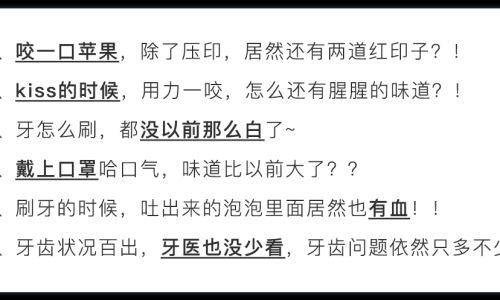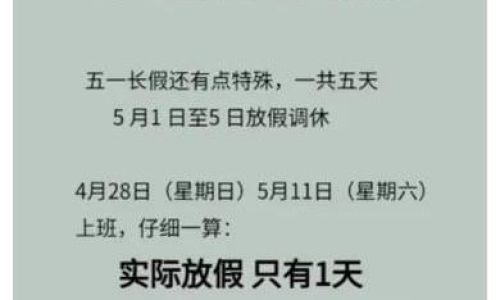In the tapestry of human experience, discomfort is a universal thread. Yet, languages often encapsulate such feelings with phrases that resist easy translation, embedding cultural and contextual richness into their fabric. One such expression is the Chinese colloquialism bù dé jìn (不得劲), a term that resonates deeply in Mandarin-speaking communities yet defies simple equivalence in English. This article delves into the multifaceted meaning of bù dé jìn, exploring its linguistic roots, cultural implications, and the psychological terrain it navigates. By dissecting its components and contextual applications, we aim to illuminate how this seemingly mundane phrase captures a spectrum of human unease—physical, emotional, and social—that transcends linguistic boundaries.

The Linguistic Architecture of “Bu De Jin”
To comprehend bù dé jìn, one must first dissect its constituent parts. The phrase is a tripartite construction:
- Bù (不): A negation particle, akin to “not” or “no” in English.
- Dé (得): A multifunctional verb meaning “to obtain,” “to achieve,” or “capable of.”
- Jìn (劲): A noun with layers of meaning, including “strength,” “energy,” “vigor,” or “momentum.”
At face value, the literal translation—”not able to obtain strength” or “without energy”—seems straightforward. However, language is rarely literal, especially in colloquial use. Bù dé jìn transcends its grammatical skeleton to encapsulate a state of being off-kilter, a sense that something is amiss without a clear diagnostic label. It is the feeling of wearing ill-fitting shoes, the dissonance of a misplaced chord in a familiar melody, or the weight of unspoken words in a relationship.
Cultural Context: The Chinese Concept of “Qi” and Holistic Well-Being
The phrase’s roots intertwine with traditional Chinese philosophy, particularly the concept of qi (气), or vital energy. In Taoist and Traditional Chinese Medicine (TCM) frameworks, qi flows through the body along meridians, sustaining health and balance. When qi is blocked or depleted, physical and emotional ailments arise. Bù dé jìn mirrors this holistic worldview: it is not merely a physical sensation but a disruption in the harmony of mind, body, and environment.
For instance, a person might describe feeling bù dé jìn after a sleepless night, during a humid summer day, or in a socially awkward interaction. In each case, the phrase signals a departure from shūshì (舒适), or comfort—a state of effortless equilibrium. Unlike Western metaphors that often frame discomfort as a battle (e.g., “fighting a cold”), bù dé jìn evokes a subtle, persistent friction, akin to walking through molasses.
Philosophical Underpinnings: The Grey Between Order and Chaos
Chinese philosophy, with its emphasis on yin and yang, views life as a dynamic interplay between opposing forces. Bù dé jìn thrives in this grey area—a temporary imbalance where neither chaos nor order dominates. It is the pause before a sneeze, the anticipation of bad news, or the lingering doubt after a decision. This duality renders the phrase uniquely adaptable: it can describe a stiff neck, a strained friendship, or even existential ennui.
Consider a scenario where a colleague avoids eye contact during a meeting. An English speaker might say, “I feel uneasy,” but a Mandarin speaker could articulate the nuance with bù dé jìn—suggesting not just discomfort but a vague sense of disrupted rapport. The phrase thus acts as a linguistic bridge, connecting the tangible (a stiff shoulder) to the intangible (unspoken tensions).
Psychological Dimensions: The Spectrum of Dis-Ease
Psychologists often categorize discomfort into somatic (physical) and psychic (emotional) domains. Bù dé jìn straddles both, reflecting the Chinese cultural tendency to blur these boundaries. For example, chronic stress might manifest as bù dé jìn in the lower back (a somatic symptom) while also signaling emotional exhaustion. This holistic lens challenges Western reductionsim, where mind and body are often treated as separate entities.
Research in cross-cultural psychology supports this idea. Studies on “somatic symptom reporting” across cultures reveal that East Asians are more likely to attribute emotional distress to physical sensations than Westerners. Bù dé jìn exemplifies this tendency: it is a somaticized expression of psychological unease, a cultural script for navigating internal turmoil.
Social Applications: The Art of Non-Confrontational Communication
In interpersonal contexts, bù dé jìn serves as a verbal cushion, allowing individuals to express dissatisfaction without assigning blame. For instance, a friend might say, “This restaurant feels bù dé jìn,” subtly critiquing the ambiance without overt criticism. Similarly, a team leader might note, “The project timeline feels bù dé jìn,” signaling the need for adjustment without undermining morale.
This linguistic flexibility aligns with Confucian ideals of harmony (hé 和) and face-saving (miànzi 面子). By avoiding direct confrontation, bù dé jìn preserves social cohesion while still addressing the issue. It is the linguistic equivalent of a gentle nudge—firm enough to register but soft enough to avoid conflict.
Comparative Linguistics: Bridging the Gap with English
English lacks a direct equivalent for bù dé jìn, though several phrases approximate its meaning:
- “Off”: As in “I feel off today.”
- “Uneasy”: Suggesting anxiety or apprehension.
- “Malaise”: A generalized sense of discomfort.
- “Not quite right”: Indicating something is amiss.
However, these translations lack the phrase’s cultural depth. “Malaise,” for example, implies a systemic issue (e.g., economic or societal), whereas bù dé jìn is personal and situational. Similarly, “off” is vague but lacks the physical undertone inherent in bù dé jìn.
This linguistic gap highlights broader differences in emotional granularity. While English excels in precise psychological terminology (e.g., “anxiety,” “depression”), Mandarin often embeds emotional states in somatic or situational contexts. Bù dé jìn thus offers a window into a cultural model of selfhood where internal states are inseparable from external circumstances.

Modern Usage: From Street Vendors to Digital Age
In contemporary China, bù dé jìn permeates everyday speech, adapting to urban life’s pressures. A Beijing office worker might complain of bù dé jìn after hours of screen time; a Shanghai student could use it to describe exam-related stress. Even in digital communication, the phrase thrives—often abbreviated as BDJ in text messages or paired with emojis to convey nuance.
The internet age has also birthed new applications. Online forums dedicated to mental health see users describing burnout as bù dé jìn, blending traditional and modern understandings of exhaustion. Meanwhile, memes juxtapose the phrase with images of existential despair, underscoring its versatility.
Therapeutic Implications: Rethinking Discomfort in a Globalized World
As mental health awareness grows globally, bù dé jìn offers a framework for reimagining discomfort. In therapy, clients might use the phrase to articulate vague yet persistent unease, guiding clinicians toward holistic interventions. A patient complaining of bù dé jìn in their marriage, for example, could signal the need for couples therapy, stress management, or even physical health check-ups.
Moreover, the phrase challenges the Western biomedical model’s focus on diagnosable disorders. Bù dé jìn encompasses subclinical distress—the pre-symptomatic phase where intervention might prevent escalation. This proactive approach aligns with TCM’s preventive ethos, emphasizing balance over cure.
Artistic Representations: From Literature to Film
Bù dé jìn has long inspired Chinese artists, who use it to evoke atmospheric tension. In literature, authors like Yu Hua deploy the phrase to characterize post-Mao era disillusionment, where societal shifts left individuals adrift. Films such as A Touch of Sin (2013) use visual motifs (e.g., stagnant water, claustrophobic spaces) to mirror the protagonists’ bù dé jìn states.
Even in popular culture, the phrase persists. A TikTok trend saw users lip-syncing to a song titled Bù Dé Jìn, using the phrase to describe millennial angst. This digital appropriation underscores the term’s adaptability, morphing from a folk expression into a generational anthem.
Philosophical Critiques: The Danger of Vagueness
While bù dé jìn offers cultural richness, its ambiguity can also hinder clarity. In clinical settings, vague complaints risk misdiagnosis; in relationships, passive communication might fester unresolved issues. Critics argue that the phrase’s reliance on context can obfuscate accountability, turning systemic problems into individualized “discomfort.”
For example, labeling workplace harassment as bù dé jìn might downplay its severity, framing abuse as a personal inconvenience rather than a structural injustice. This tension highlights the phrase’s duality: a tool for nuanced expression or a smokescreen for avoidance.
Global Relevance: A Universal Language of Unease
Despite its cultural specificity, bù dé jìn resonates universally. The COVID-19 pandemic, for instance, engendered a collective bù dé jìn—a global sense of suspended animation, of time dilating and routines fracturing. In this context, the phrase transcended borders, becoming a shorthand for the era’s existential limbo.
Similarly, climate anxiety and political polarization evoke a modern bù dé jìn—a disquiet rooted in planetary-scale uncertainty. Here, the phrase’s vagueness becomes a strength, capturing the ineffable dread of a world in flux.
Conclusion: The Beauty of Being “Off”
Bù dé jìn is more than a phrase—it is a cultural lens, a psychological compass, and a social glue. By resisting easy categorization, it mirrors the messiness of human experience, where comfort and discomfort coexist in delicate equilibrium. In a world increasingly divided by language and ideology, bù dé jìn reminds us that some truths are best expressed not through precision, but through the poetry of ambiguity.
As globalization homogenizes expression, preserving such linguistic gems becomes an act of cultural stewardship. To understand bù dé jìn is to honor the untranslatable—the quiet corners of the human heart that defy labels, the feelings we sense but cannot name. In these moments, the phrase offers not just a definition, but an invitation: to sit with discomfort, to acknowledge its complexity, and to recognize that sometimes, the most profound truths lie in the spaces between words.






0 comments